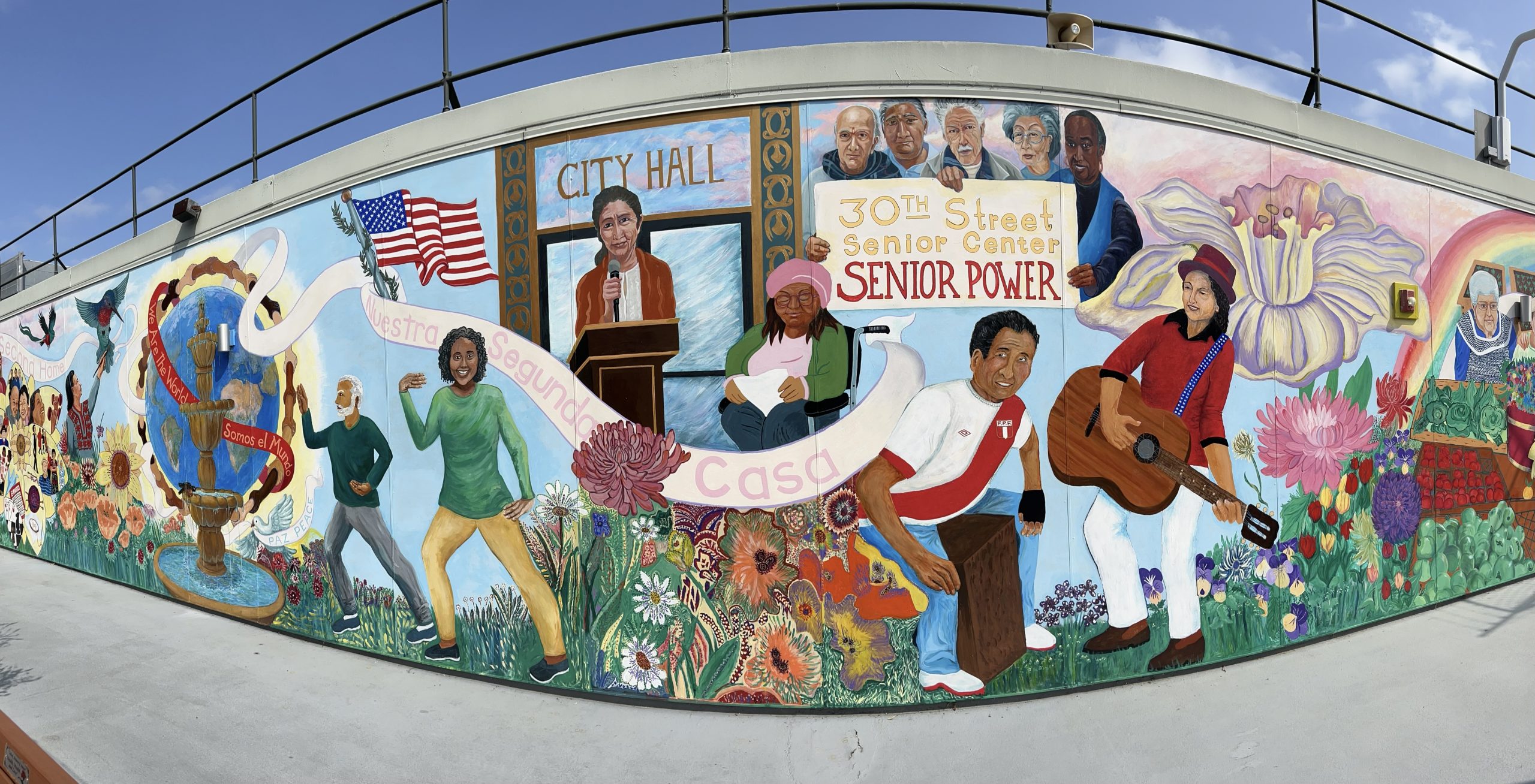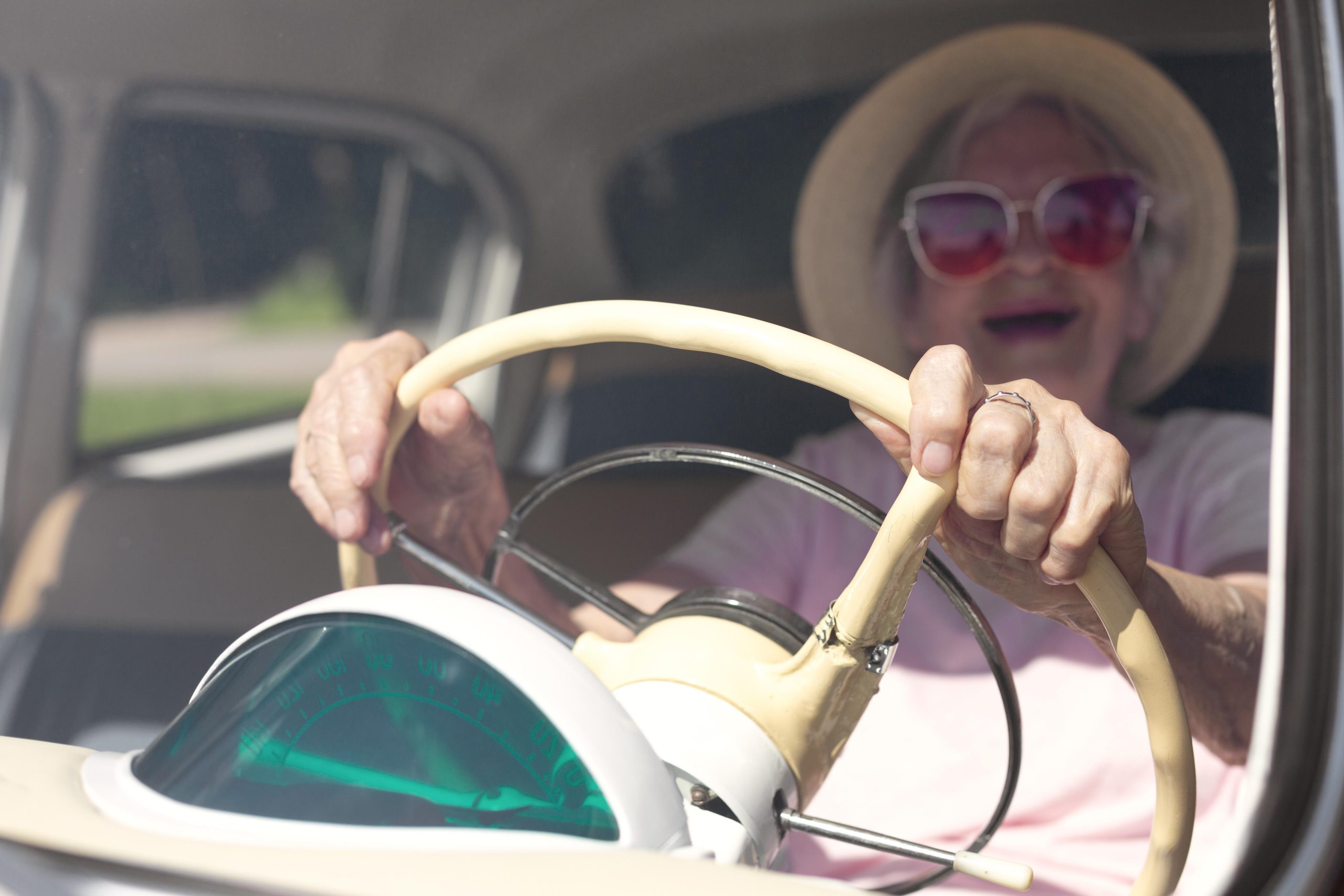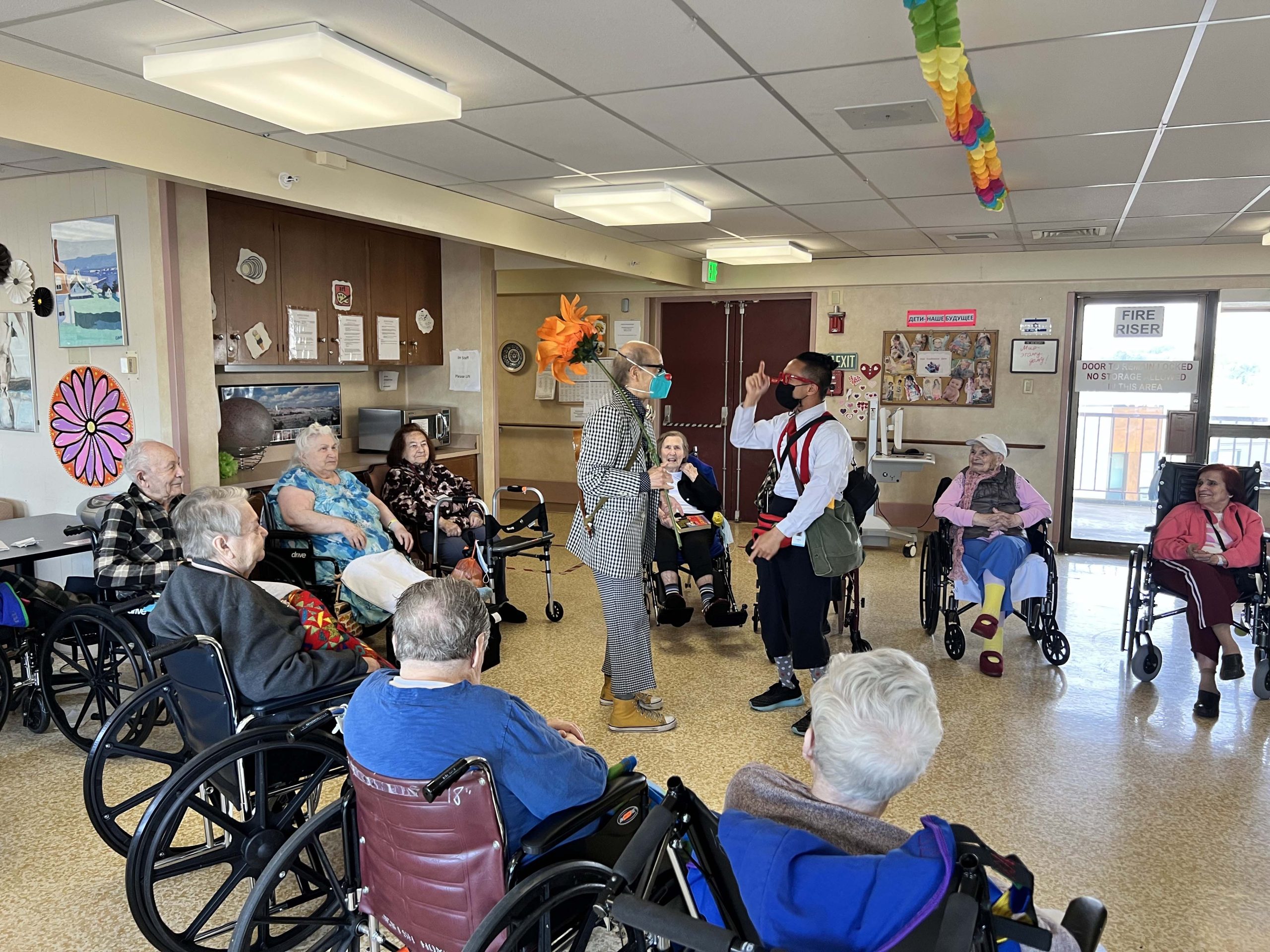Chance encounter with a Curry Center worker lifts bipolar sufferer back to engaged life with a new friend
CREATING COMMUNITY – Depression and confusion marked the first decades of Ray Walsh’s life. Only recently has the 66-year-old begun to feel free from the demons that controlled him.
A San Francisco native, Walsh dropped out of school at 18, hoping to make it as a musician. He studied piano as a child and picked up the guitar as an adolescent. To some degree he succeeded.
Several of his solo guitar performances made it into the San Francisco Chronicle’s entertainment listings. For some years Walsh supplemented what he earned playing in clubs by working as a legal secretary. But his music brought neither peace nor enough money to live on. He has bipolar disorder.
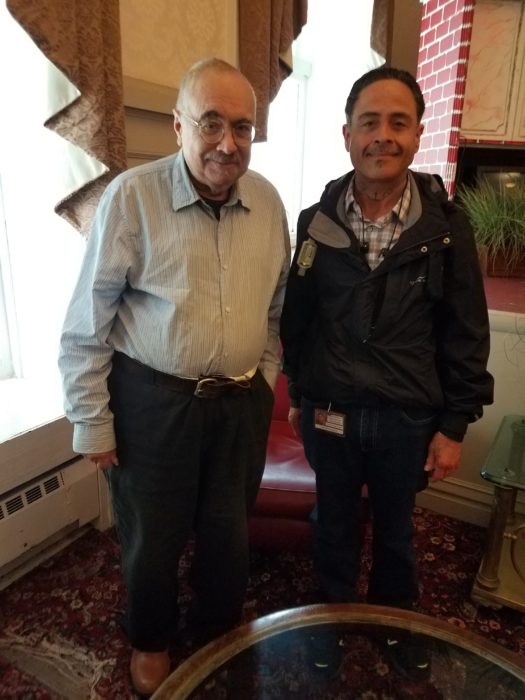
Two years ago, after a stay in a mental institution, Walsh’s brother found him a room in The Granada, a retirement hotel in Upper Nob Hill, where he could recover after knee replacement surgery. One day, sitting by himself in the hotel’s community room, he was approached by Michael Belmontes, one of eight Curry Senior Center outreach specialists. Belmontes was visiting a client at the hotel.
“I had seen him sitting there in the same place, by himself, for weeks, maybe even months, so I went over and said hello. He told me he was recovering from surgery and except for visits to his doctor and twice weekly mental health support group meetings at the Hyde Street Clinic, he said he didn’t get out much.”
To Walsh, their encounter seemed spontaneous. “Michael and I saw each other and just started talking, He told me what’s happening at Curry and around the city.” That conversation piqued Walsh’s curiosity.
Belmontes told him about Curry’s Senior Vitality Program, which helps clients use an iPad to better manage their chronic conditions, make healthier life style choices and pursue their own interests. In Walsh’s case that meant listening to music, connecting with old friends, texting his cousin when he “learns something new,” and staying in touch with Belmontes.
“This program expands lives. You see a spark in somebody, and suddenly it kindles. People restart to live their life. In some cases, all it takes is this other person. It’s magic.”
Michael Belmontes
Five or so years ago, when the Peer Outreach Program was first developed, the theory was that lonely, isolated seniors need help connecting to services and activities. Experience proved them wrong.
“Soon after we started the program, we realized people could be connected to services and be busy, but still be lonely, so our Outreach Specialists concentrate on building personal connections,” said program supervisor Daniel Hill.
“Many of our clients have no one in their lives. They need extra support for venturing out and reconnecting. We take them window shopping, involve them in activities in the central City, visit the Park, accompany them to Church, encourage them to participate in congregate meal programs . Each client is unique, what works for one doesn’t necessarily work for another.”
Dr. Carla Perissinotto, a geriatrician at the University of California-San Francisco, and the program evaluator, said they continue to learn more about what actually makes people feel lonely and isolated.
“We’re working with a fairly marginalized population. So far, we’ve found that many of the participants are connected with LOTS of programs and yet people are still quite isolated. Connecting with a peer may be the part that has been missing. Unlike social workers or case managers, peer outreach specialists don’t come with a specific agenda; they’re there to listen and befriend. ”
Something clicked in that short conversation in The Granada hotel: Walsh agreed to let Belmontes visit him again. A year later, they are still meeting and enjoying one another’s company. Recognizing that music has always been Walsh’s salvation, one of the first outings they took was to attend the noontime free, monthly concert at the Cadillac Hotel, an outing they continue to enjoy.
At Curry’s Senior Vitality Program, Walsh learned to use an iPad to better manage his chronic health conditions. Now that he’s feeling more grounded and has learned to better manage his health, Walsh has been able to reduce his doctor visits from twice to once a week. He uses his free time to explore the city.
His favorite walks take him down Polk Street and over to the Fillmore district and Chinatown, where he discovered a $5 haircut. But he also walks down to Market, toward Curry, the Cadillac Hotel, which holds a free concert series open to the public, and the other resources he’s come to enjoy, like the public library, where he borrows books on Eastern philosophy.
Walsh also used the iPad to pursue his own interests: listening to music, connecting with old friends, texting his cousin Peter when he “learns something new,” and maintaining contact with Belmontes between their weekly or twice weekly visits.
That relationship seemed to kickstart something in Walsh.
All of a sudden, he started revisiting old interests and pursuing new ones, said Belmontes. “On his own, he discovered the wading pool and exercise programs at the YMCA, yoga classes at Glide, the exercise program at The Granada, and the orthopedist at St. Anthony’s, meditation and his love of hanging out in coffee shops are some of the things I witnessed him bloom into. “
Hill calls Walsh “the poster boy for our program. We may even hire him as an outreach worker.”
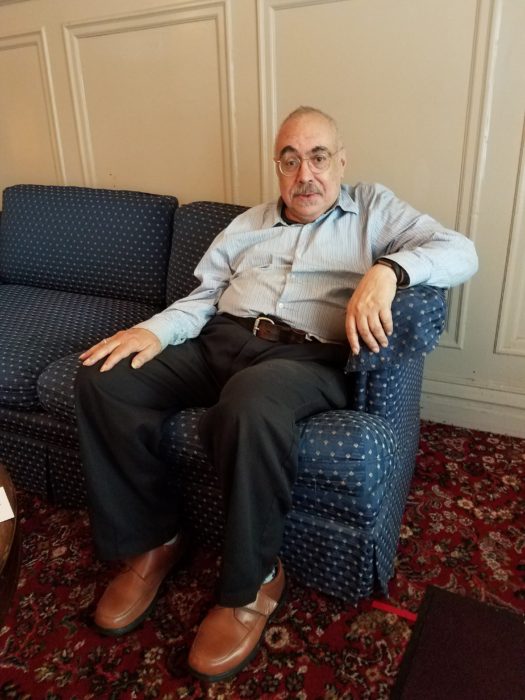
“This program expands lives. You see a spark in somebody, and suddenly it kindles,” said Belmontes. “People restart to live their life. In some cases, all it takes is this other person. It’s magic.”



